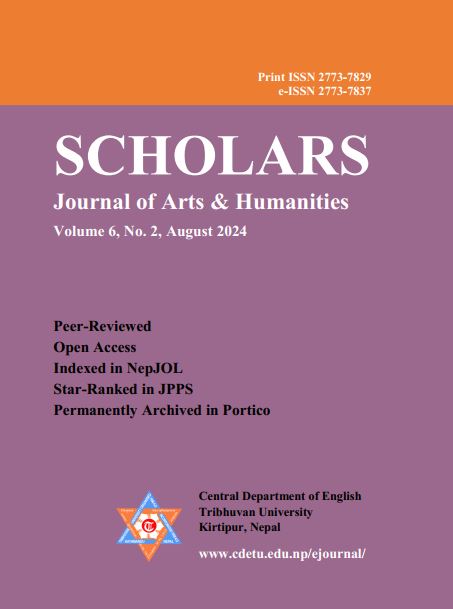The Neoliberal Rhetoric of Environmental Justice in Mike Davis’ Planet of Slums and Arundhati Roy’s Capitalism: A Ghost Story
DOI:
https://doi.org/10.3126/sjah.v6i2.68743Keywords:
Ecocriticism, environmental justice, neoliberalism, neoliberal rhetoricAbstract
This paper explores the practical implications of the rhetorical strategies used by the advocates of neoliberal market economy to find out if global capitalism can deliver environmental justice. Using the “environmental justice discourse” within the Ecocritical perspective, the paper analyzes the two representative texts: Planet of Slums (2005) by Mike Davis and Capitalism: A Ghost Story (2014) by Arundhati Roy. The exponents of neoliberalism take the market competition as an umpire of economic growth and regard government regulations as its impediment. They argue that the private sector is the most reliable entity that ensures scientific management, conservation, and environmental justice by making a prudent use of natural resources. However, Davis’ and Roy’s texts disclose that the corporate houses under the neoliberal policy of market expansion are misleading people by claiming to ensure environmental justice. This study examines and dissects the conflict between market advocates and environmental justice activist, with a specific focus on neoliberal rhetoric. The paper argues that, rather than ensuring social and environmental justice, the neoliberal economic system facilitates the accumulation of wealth and resources in the hands of a few corporations and their owners, paving the way for further exploitation of natural resources and cheap labor. By introducing a fresh interpretive tool within academia, it contributes to scholarly pursuits.
Downloads
Downloads
Published
How to Cite
Issue
Section
License

This work is licensed under a Creative Commons Attribution 4.0 International License.
© Central Department of English, Tribhuvan University and Authors




